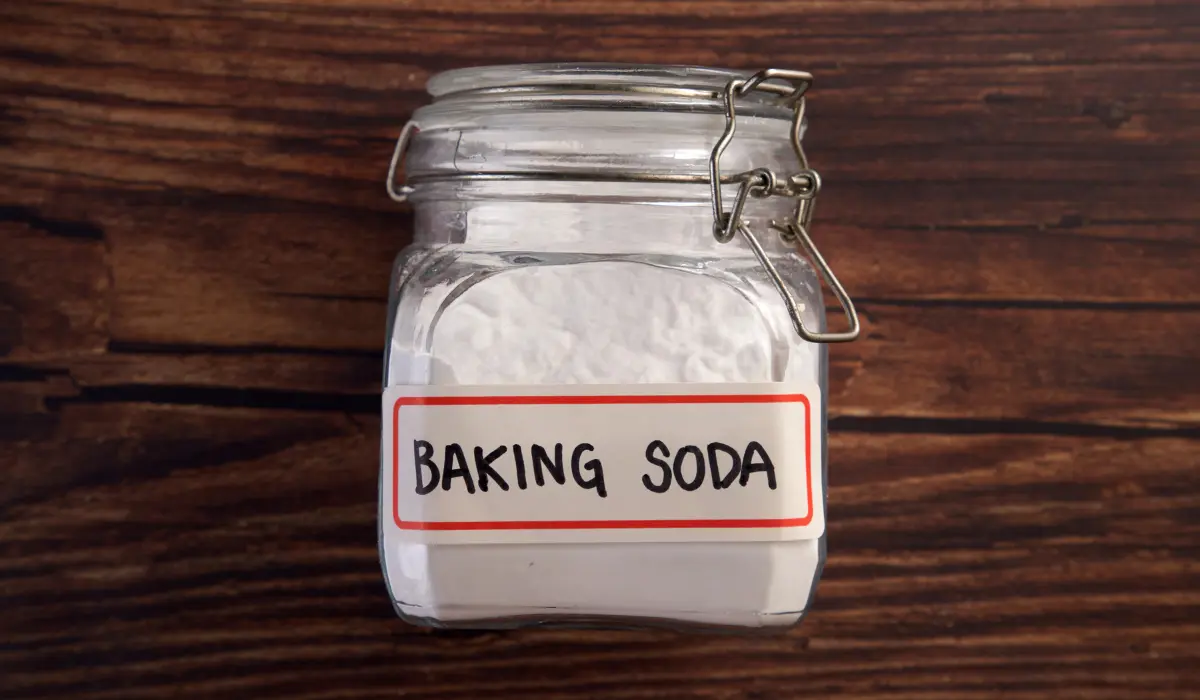Is Baking Soda an Effective Rat Killer? Here’s What to Know
Baking soda reacts with rat stomach acid, potentially making it an effective and non-toxic homemade rat poison. However, it is not the most reliable method, so we don’t recommend it.
Curious about using baking soda for rodent control? Keep reading!
Key Takeaways
- When rats ingest baking soda, stomach acid reacts with it to produce carbon dioxide gas, which they cannot expel through burping.
- You can create an effective rat poison by mixing equal parts of baking soda, peanut butter, and potato flakes and placing them in areas frequented by rats.
- Despite its potential, baking soda is not a reliable method of killing rats as they can avoid ingesting lethal amounts and can expel gas when there is gas buildup.
- Alternatives to baking soda for rat control include using natural repellents like essential oils or physical agents like diatomaceous earth and boric acid.
- Professional pest control offers comprehensive rat control solutions like thorough inspections, strategic trap placements, and prevention advice.
How Baking Soda Kills Rats

Baking soda, scientifically known as sodium bicarbonate, is a versatile white crystalline powder with numerous household and industrial applications.
Reaction of Baking Soda Inside a Rat’s Stomach
The theory behind baking soda killing rats is that it reacts with their stomach acid to create carbon dioxide gas after ingesting through a mouse trap.
Here’s what theoretically happens:
- Enters the stomach: Baking soda (sodium bicarbonate) enters the rat's stomach, where it encounters gastric secretions.
- Mixes with acid: It mixes with the hydrochloric acid present in the stomach.
- Produces gas: This chemical interaction rapidly produces carbon dioxide gas.
- Traps gas inside: The rat cannot expel the gas with a burp, leading to its blockage or buildup.
- Causes discomfort: The blockage or gas buildup causes significant discomfort and distress.
- Leads to fatal outcomes: Unable to relieve the pressure, the rat may succumb to these internal conditions.
Why Baking Soda May Not Be Effective to Kill Rats
While baking soda is often suggested as a home remedy for getting rid of rats, it's essential to know that it's not a reliable solution. Here's why:
They’d have to ingest a lot of baking soda: For baking soda to be lethal to a rat, they must ingest a large amount, typically more than 50% concentration.
Unpredictable: No matter how much baking soda you add, they'll likely skip it for other food sources.
Unpalatable: They are naturally cautious eaters and may avoid ingesting large amounts of baking soda on their own.
Ability to Expel Gas: They can expel gas through farting, reducing the chance of lethal gas buildup from ingesting baking soda.
Professional Rat Control Solutions
When you consider professional rodent controls, you can benefit from their variety of extermination methods, such as:
- Assessment: Experts begin with a thorough inspection to understand the extent of the rat problem.
- Exclusion: This involves sealing entry points to keep rats out permanently.
- Traps and Baits: Professionals may use advanced rat traps and bait stations positioned strategically.
- Sanitation: They advise on cleanliness practices to deter future infestations.
Should You Get In Touch with Pest Control Professionals Now?
When dealing with a rat infestation, it can be tempting to try do-it-yourself methods, such as baking soda. However, there are certain situations where professional intervention is critical.
If you notice an ongoing presence of rats along with other critters like cockroaches, fleas, or bedbugs, it's advisable to contact a professional pest control company (like us at Native Pest Management) immediately.
We will assess the situation, implement effective solutions, and help you prevent future infestations.
.2407080226105.jpg)